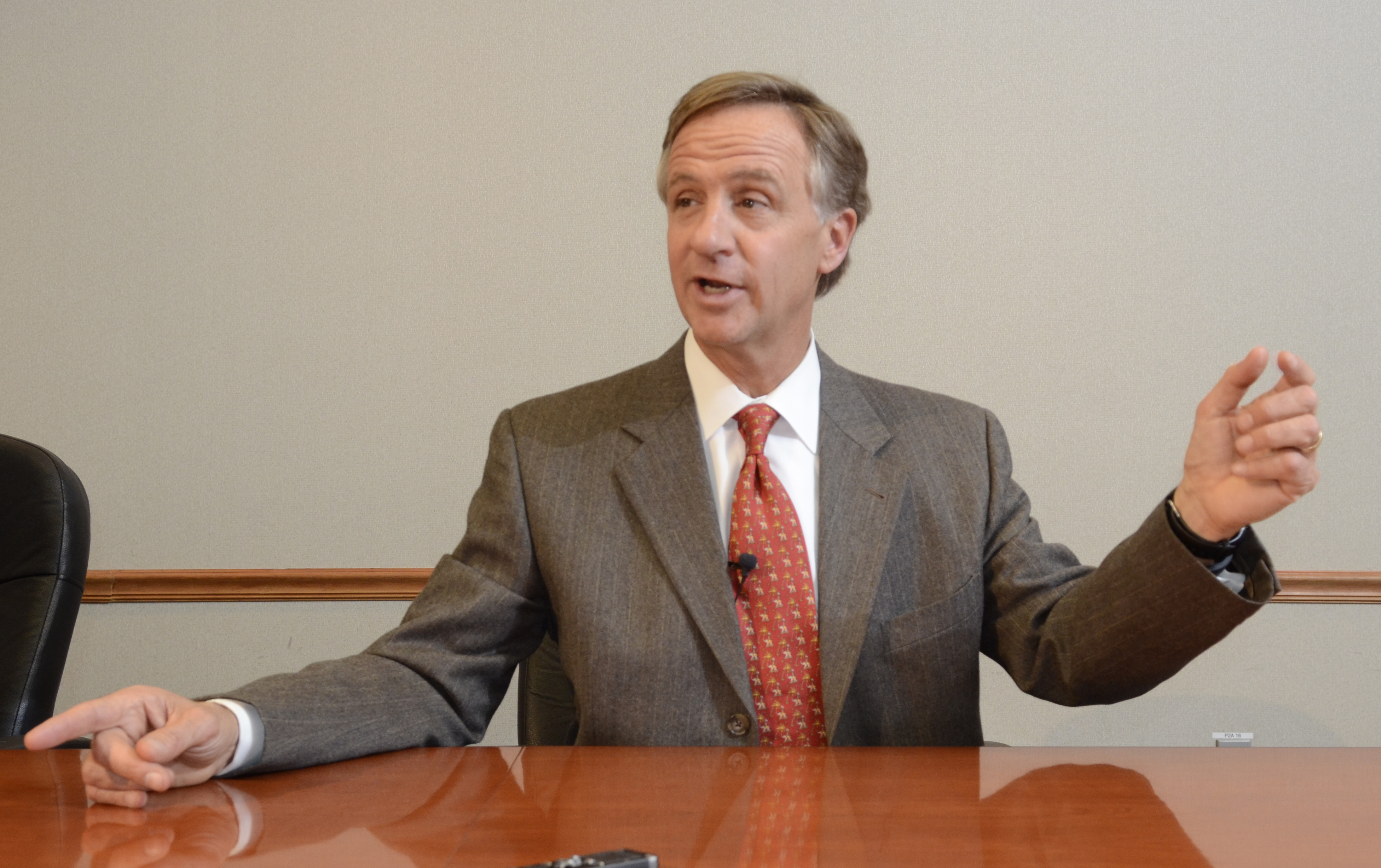NASHVILLE - An abrupt move by Florida Gov. Rick Scott, a prominent critic of Obamacare, to reverse course and support Medicaid expansion hasn't been enough to bump fellow Republican Gov. Bill Haslam of Tennessee off the fence.
Haslam remains undecided about whether to expand the state health program for the poor. He "continues to collect all of the information possible" before making a yes or no recommendation to Tennessee lawmakers, the governor's spokesman, Davis Smith, said Thursday.
In his email response to questions, Smith said like Haslam's previous decision on a state-operated health care exchange, the governor "will remove politics from his decision-making to determine what works best for Tennessee."
On Wednesday, former health care executive Scott, who campaigned for governor fiercely opposing President Barack Obama's Affordable Care Act, announced he would back expansion.
The 2010 law calls for the largely federally funded expansion of Medicaid, known as TennCare in the Volunteer State, with Uncle Sam picking up 100 percent of the cost for the first three years before scaling down its share to 90 percent in 2020.
Last year, the U.S. Supreme Court said the Medicaid decision has to be voluntary, not required as the law originally directed, dumping the decision on states. TennCare officials estimated about 180,000 people likely would take advantage of the expansion.
Scott cited the recent death of his mother and said he could not "in good conscience deny the uninsured access to care."
He talked about the impact on the "poorest and weakest" Floridians, the Tampa Bay Times reported. Even though the first three years would cost the state nothing, it remains unclear whether Florida's GOP lawmakers will go along.
Continuation of the expansion after year three also would be in Florida lawmakers' hands. Scott's move also was linked to a federal agreement to let Florida proceed with a wider privatization of the Medicaid program for low-income people.
Tennessee Lt. Gov. Ron Ramsey, the Republican Senate speaker, told reporters that Scott's decision "surprised me, but I think he put more stipulations and restrictions in taking that money than any other governor has so far."
Ramsey said he's told Haslam "that if we do this -- and I honestly can't predict what happens -- we need to make sure that we get a sheet of bullet points on why we did that, the concessions we got."
Asked by reporters whether Scott's decision could provide some protection for Tennessee officials, Ramsey said, "I can see how you can say that gives you some cover, but I don't think that plays into how we make a decision one way or the other."
Haslam still will have to persuade the GOP-dominated General Assembly, Ramsey said.
"If you say do you want this money or don't want this money, the answer will be no. But if you make a convincing case on why this needs to be done, I think there's a possibility," Ramsey said.
Ramsey said winning approval "won't be easy."
Advocates for the poor and Tennessee hospitals are pressing lawmakers to approve the expansion, which in Georgia was recently rejected by Republican Gov. Nathan Deal.
Haslam has already rejected Tennessee running its own health care exchange under the federal overhaul. The exchanges help people above the federal poverty level and provides financial aid. Some Republicans say Haslam faced major hurdles in winning GOP lawmakers' approval.

